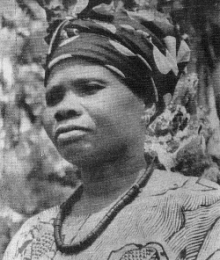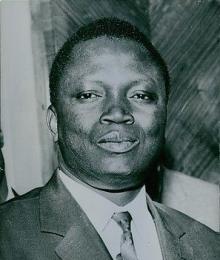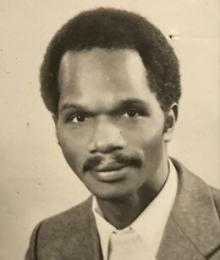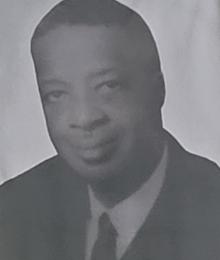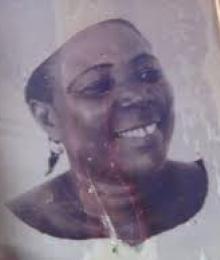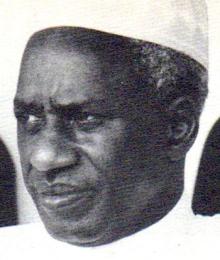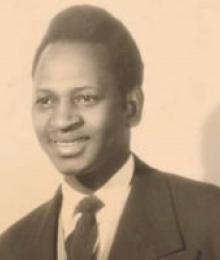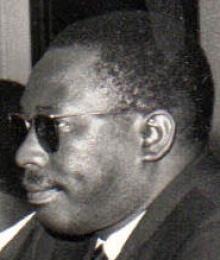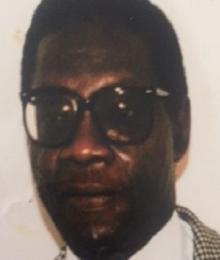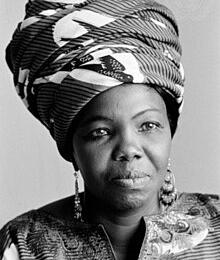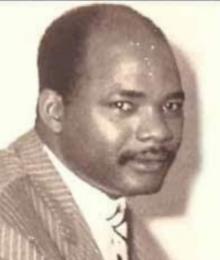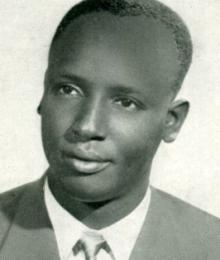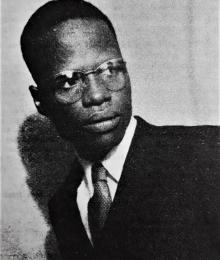
Koumandian Keita (1916-2002) was an iconic figure in 20th-century Guinean political and trade union life. Trained as a teacher, he distinguished himself as an influential union leader, serving as the General Secretary of the African Teachers' Union of Guinea from 1951 to 1961. His political engagement led him to found the African Bloc of Guinea in 1954 and play a crucial role in the campaign for independence during the 1958 referendum.
Despite his initial support for independence, Keita quickly found himself in opposition to Sékou Touré's regime, which resulted in his imprisonment from 1961 to 1967 for an alleged "teachers' plot". After his release, he continued to work in education while under constant surveillance. His journey illustrates the hopes and challenges of post-independence Guinea, making him a symbol of the struggle for education, justice, and democracy in his country.
Introduction
Koumandian Keita (1916-2002) is an indispensable figure in the political and trade union history of Guinea. His journey, marked by an unwavering commitment to education and his country's independence, makes him one of the key actors in Guinea's struggle for emancipation. This biography traces the exceptional path of a man who skillfully combined his talents as a teacher, trade unionist, and politician to shape Guinea's future.
Childhood and Education
Born in 1916 in French Guinea, Koumandian Keita grew up in a colonial context where access to education for Africans was limited. Despite these obstacles, he managed to pursue his studies and joined the École William Ponty, a prestigious institution for training African executives in French West Africa (AOF). This education provided him with the necessary skills to become a teacher, a profession that would play a crucial role in his future engagement.
Professional Career
Koumandian Keita's professional career is closely linked to his union engagement. Trained as a teacher, he became General Secretary of the African Teachers' Union of Guinea in 1951, a position he would hold until 1958. Under his leadership, the union experienced significant growth, increasing from 60 to 224 members between 1951 and 1953.
Keita distinguished himself by his ability to negotiate with the colonial administration to improve teachers' working conditions. He campaigned for better teacher training, the construction of adequate housing, and opposed the funding of private schools with public funds.
In parallel, he led the union magazine "École Guinéenne," which became an influential platform for teachers' demands throughout French-speaking Africa. His commitment extended beyond Guinea's borders: he was elected General Secretary of the Federation of Black African Teachers (FEAN) in 1952 and actively participated in the activities of the International Federation of Teachers' Unions (FISE).
Political Career
Koumandian Keita's political engagement began in the 1940s. Although details of his first steps in politics are little known, he reportedly participated in the founding of the African Democratic Rally (RDA) in Bamako in 1948, alongside figures such as Sékou Touré and Mamadou Madeira Keita.
In the 1950s, Keita became more involved in Guinean political life. He founded the Union of Mandé with Sinkoun Kaba and Framoï Bérété, then in 1954, he created the African Bloc of Guinea (BAG) with Barry Diawadou. This party quickly became one of the main opponents of Sékou Touré's Democratic Party of Guinea (PDG).
Despite disappointing electoral results for the BAG in the 1956 municipal elections, Koumandian Keita continued to play an important role in the Guinean political scene, notably thanks to his influence within the teachers' union.
Struggle for Independence
Koumandian Keita's commitment to Guinea's independence intensified in the late 1950s. As a union leader and political figure, he actively participated in debates about the country's future.
His role became particularly crucial during the September 1958 referendum, where he took a stand in favor of independence, thus opposing the official line of the RDA in French West Africa. This bold decision helped sway Guinean public opinion in favor of voting "No" to the French Community proposed by General de Gaulle.
September 1958 Referendum
The September 1958 referendum marked a turning point in Koumandian Keita's political career. While most African political leaders called for a "Yes" vote to Charles de Gaulle's proposal to create a French Community, Keita, at the head of the teachers' union, campaigned for a "No" vote.
This position, initially in opposition to that of Sékou Touré and the PDG, eventually influenced the Guinean leader's final decision. Two weeks before the referendum, Touré rallied to the "No" camp, leading to an overwhelming victory for the independence option. Koumandian Keita's courage and conviction thus played a decisive role in Guinea's accession to independence on October 2, 1958.
Arrest and Imprisonment
Despite his role in Guinea's accession to independence, Koumandian Keita quickly found himself in conflict with Sékou Touré's new regime. In 1961, he was arrested and accused of fomenting a "teachers' plot" against the government.
On November 23, 1961, Keita was sentenced to ten years of forced labor. He was incarcerated in various concentration camps, including the infamous Camp Boiro. During his detention, he suffered torture and inhuman treatment, living in deplorable hygienic conditions and suffering from malnutrition.
His testimony, later published under the title "Guinea 61. The School and the Dictatorship," offers a poignant glimpse into the sufferings endured by political prisoners under Sékou Touré's regime.
After Liberation
Koumandian Keita was finally released on October 6, 1967, after six years of detention. Despite the physical and psychological sequelae of his imprisonment, he attempted to resume a normal life. He first worked in the national tele-education service, then in the primary inspection of Kouroussa from October 1969.
However, his freedom remained relative. He was constantly monitored by law enforcement and subjected to regular harassment. His health, severely affected by years of detention, improved only slowly despite several medical trips abroad.
Death and Tributes
Koumandian Keita passed away in 2002, leaving behind a complex legacy. Despite the trials he endured, his commitment to education and Guinea's independence remains recognized. As a testament to his impact on Guinean society, a high school in Conakry now bears his name: the Lycée Koumandian Keita.
His journey illustrates the challenges and contradictions of the post-independence period in Guinea, where hopes for freedom and progress often clashed with the reality of an authoritarian regime.
Private Life
Although information about his private life is limited, it is known that Koumandian Keita was married to Kadé Sissoko, a Sudanese teacher who graduated from the École normale de Rufisque. This marriage between two committed teachers testifies to the importance he placed on education, both in his professional and personal life.
Publications
Koumandian Keita left few writings, but his testimony "Guinea 61. The School and the Dictatorship," published after Sékou Touré's death in 1984, constitutes a valuable document on the early years of Guinean independence and the excesses of the regime. This book offers a unique insight into the union struggles of the time and the mechanisms of repression put in place by the authorities.
As editor-in-chief of the "École Guinéenne" magazine, Keita also contributed numerous articles and editorials on education and politics in Guinea. These writings, although less accessible today, played an important role in shaping Guinean public opinion in the 1950s and early 1960s.
Conclusion
Koumandian Keita embodies the hopes and tragedies of post-independence Guinea. His journey, from brilliant trade unionist and politician to political prisoner and then survivor of an authoritarian regime, illustrates the challenges faced by many African intellectuals in the second half of the 20th century.
His commitment to education and his country's independence, his fight against injustice, and his resilience in the face of adversity make him an inspiring figure in Guinean history. Despite the sufferings endured, Koumandian Keita continued to defend his ideals until the end of his life.
Today, as Guinea continues to face political and social challenges, Koumandian Keita's legacy remains highly relevant. His journey reminds us of the importance of civic engagement, education, and the fight for justice, even in the most difficult circumstances. He also embodies the complexities and contradictions of African post-colonial history, where the heroes of independence sometimes fell victim to the regimes they had helped to establish.
Ultimately, the story of Koumandian Keita is that of a man who dedicated his life to his nation, paying a heavy personal price for his convictions. His courage and perseverance continue to inspire new generations of Guineans in their quest for freedom, justice, and progress.











